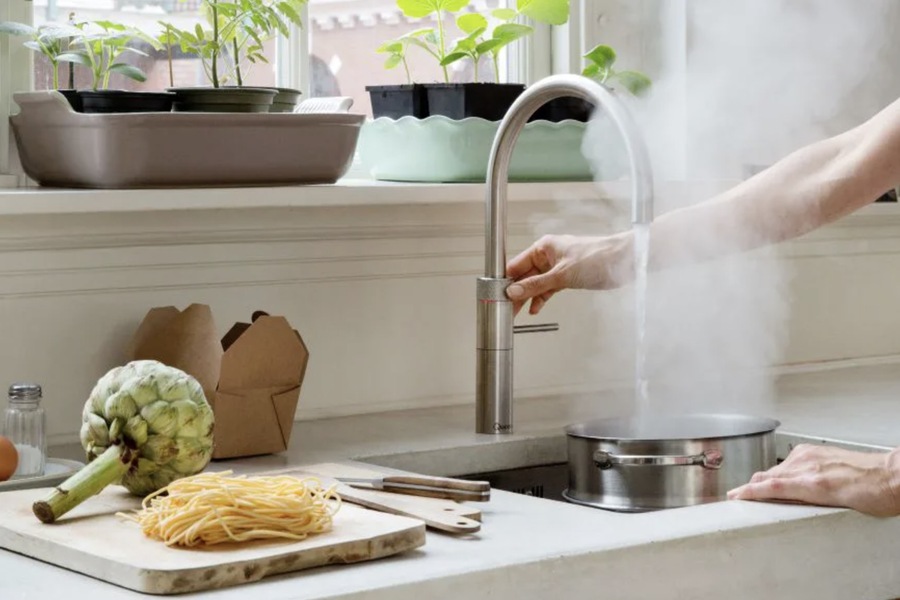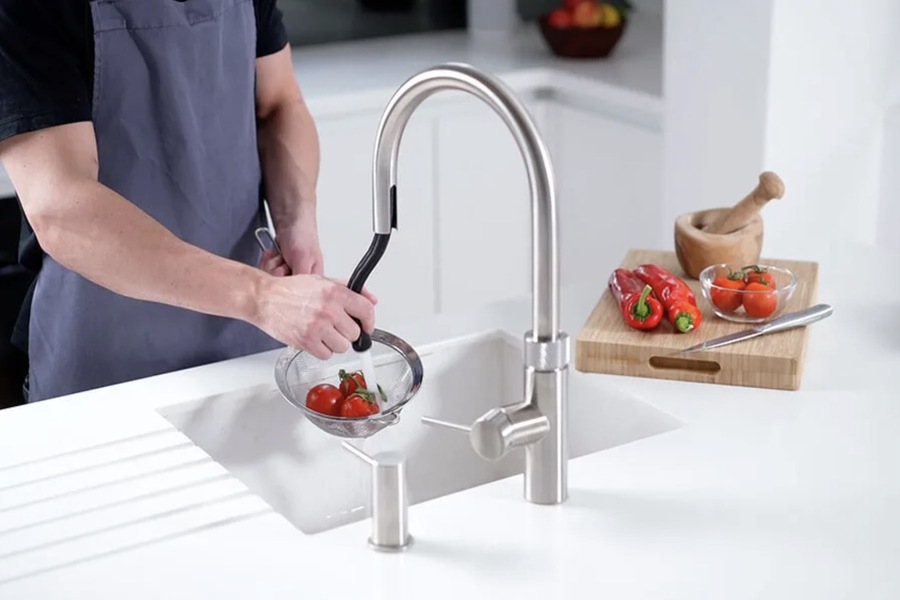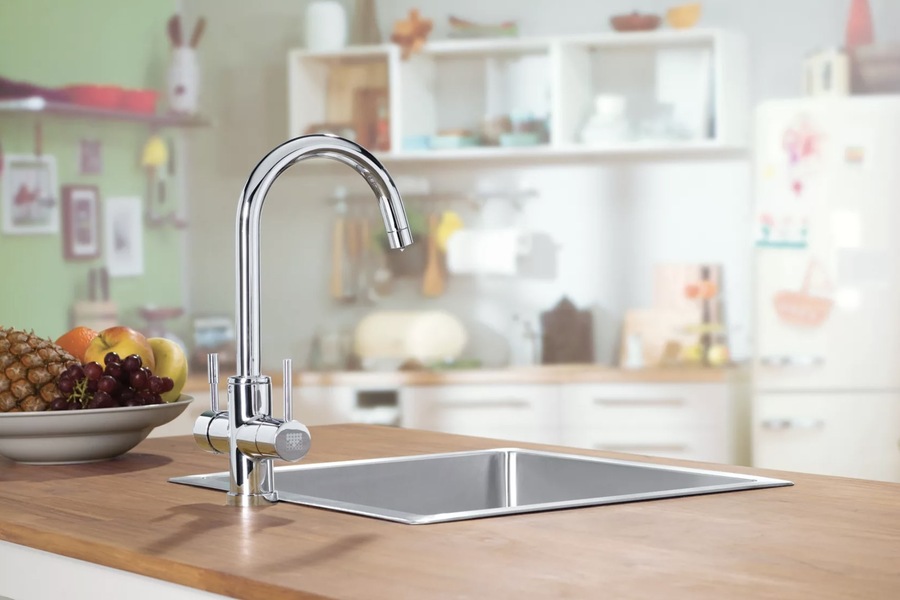The United Arab Emirates (UAE) is known for its unique climate conditions, characterized by high temperatures, humidity, and saline groundwater in many regions. When selecting kitchen taps for residential properties, these environmental factors play a significant role in determining the durability and functionality of the fittings. This article explores the key considerations homeowners in Dubai and the wider UAE region should keep in mind when choosing kitchen tap designs that can withstand the country’s challenging climate while maintaining efficiency and aesthetic appeal.
Understanding the Impact of the UAE Climate on Kitchen Taps
The UAE experiences prolonged periods of extreme heat, with summer temperatures often exceeding 45°C (113°F). The elevated temperature and humidity levels create an environment where condensation, rust, and mineral deposits become a common concern for household plumbing fixtures, including kitchen taps. The region’s desalinated water supply, which has a slightly higher salinity level, also contributes to accelerated wear and tear. These factors necessitate the selection of kitchen taps made from robust materials that can endure harsh conditions without compromising functionality or aesthetics.
Selecting Corrosion-Resistant Materials
One of the primary considerations for UAE homeowners when selecting kitchen taps is material composition. Corrosion is a prevalent issue due to high humidity levels, saline water, and air-borne salt particles near coastal regions. Stainless steel and brass are recommended for kitchen taps as they offer strong resistance to corrosion. Stainless steel, particularly grades 304 and 316, is well-suited for the UAE environment due to its high chromium and nickel content, which enhances resistance to rust and tarnish. Brass, an alloy of copper and zinc, is another ideal option as it naturally resists corrosion and reduces bacterial growth, making it a hygienic choice for kitchens.
Evaluating the Suitability of Tap Finishes
Tap finishes are not only aesthetic but also serve as protective layers for the underlying material. In the UAE’s climate, certain finishes may deteriorate faster than others. Chrome and brushed nickel are two popular options due to their resilience to humidity and ease of cleaning. However, gold or matte black finishes, while visually appealing, may fade or corrode if not properly maintained. To ensure longevity, homeowners should opt for Physical Vapor Deposition (PVD) coatings, which enhance scratch resistance and maintain a polished look despite constant exposure to heat and moisture.
Choosing Tap Designs for Efficient Water Flow
The quality of water supply in the UAE can be affected by mineral deposits and salinity, which may clog tap aerators and reduce water flow. To counter this, homeowners should select kitchen taps with detachable aerators and advanced filtration systems. These features allow for easy cleaning and prevent sediment build-up. Additionally, taps with ceramic disc cartridges offer superior sealing against leaks and are less prone to damage from the harsh water conditions commonly found in Dubai’s plumbing systems.

Opting for High-Temperature Resistant Valves and Seals
The internal components of kitchen taps, such as valves and seals, must be resilient to high temperatures to prevent premature failure. Rubber and plastic seals may degrade quickly in extreme heat, leading to water leakage and inefficient performance. Instead, silicon-based seals or ceramic valves are more suitable for the UAE’s climate, as they maintain structural integrity even at high temperatures. This ensures a longer lifespan for the tap and reduces the need for frequent replacements or repairs.
Implementing Anti-Scalding Technology for Safety
In the UAE, where water heating systems are commonly used to provide hot water, especially during the cooler months, kitchen taps are often exposed to rapid fluctuations in water temperature. Anti-scalding technology, which regulates water temperature and prevents it from exceeding a safe threshold, is an essential feature for kitchen taps. Thermostatic mixing valves can be integrated into kitchen taps to automatically balance hot and cold water, ensuring a consistent and safe temperature for the user. This is particularly beneficial for families with young children or elderly members.
Considering the Impact of Hard Water on Tap Longevity
Hard water is a common issue in the UAE, caused by high concentrations of calcium and magnesium. Hard water can lead to limescale build-up, which not only affects water flow but also reduces the lifespan of kitchen taps. Homeowners should look for taps with anti-limescale technology, such as built-in aerators that minimize mineral deposits. Regular maintenance and descaling treatments are also recommended to ensure taps remain functional and aesthetically pleasing over time.
Adopting Water-Efficient Tap Designs for Sustainable Living
Sustainability is an increasingly important consideration for UAE residents due to the region’s limited natural water resources. Choosing water-efficient kitchen taps, such as those certified by international standards like WaterSense, can help reduce water consumption without compromising performance. Flow regulators and aerators that mix air with water are effective solutions to maintain strong water pressure while minimizing water usage. This is particularly relevant for the UAE, where the average water consumption per capita is one of the highest globally, prompting the government to implement measures to encourage water conservation.
Prioritizing Smart Kitchen Tap Technologies
The integration of smart technology in kitchen taps is gaining traction in the UAE, as homeowners seek to enhance convenience and efficiency. Touchless or sensor-activated taps reduce water wastage and promote hygiene by minimizing contact. Such technologies are ideal for homes in Dubai, where modern infrastructure supports the adoption of smart home solutions. Voice-activated taps and app-controlled water flow settings further elevate the user experience, making it easy to adjust water temperature and pressure remotely, catering to the tech-savvy homeowners in the region.

Addressing Maintenance and Cleaning Challenges
Regular maintenance is crucial to preserving the functionality and appearance of kitchen taps in the UAE’s challenging climate. Homeowners should routinely clean the tap surface to remove dust, grime, and salt residues. Non-abrasive cleaning agents are recommended to prevent damage to the finish. For taps with intricate designs or grooves, using a soft-bristle brush can help access hard-to-reach areas. Additionally, periodic checks for leaks and loose fittings can prevent minor issues from escalating into costly repairs. By adhering to a consistent maintenance routine, homeowners can extend the lifespan of their kitchen taps and maintain their pristine condition.
Conclusion
Adapting kitchen tap designs to the UAE’s climate requires careful consideration of material composition, internal components, and advanced technology. Homeowners should prioritize corrosion-resistant materials, high-temperature resistant valves, and finishes that withstand humidity and saline conditions. By selecting taps designed to endure the region’s harsh environment, homeowners can enjoy durable, efficient, and aesthetically pleasing kitchen fittings that complement their living spaces.
Choosing the right kitchen tap for homes in Dubai and the UAE is not just a matter of aesthetics or functionality. It requires an understanding of how the local climate influences the durability and performance of kitchen fixtures. Homeowners who invest in high-quality materials, appropriate technologies, and regular maintenance can ensure their kitchen taps remain in optimal condition, despite the environmental challenges presented by the UAE’s unique climate conditions.
